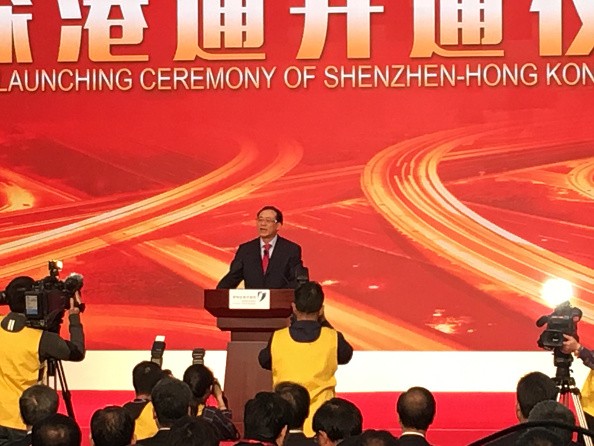Hong Kong stocks are expected to gain from China's stricter control on capital outflows as mainland investors may turn to the Hong Kong stock market to buy stocks through cross-border exchange links.
Kenny Tang, vice chairman at Jun Yang Financial Holdings Ltd. told Bloomberg that the surge in stock purchase may help the stock market, which has been trailing the global market in the last four years.
Chinese policy makers have intensified measures to curb money taken out of the country as the yuan posted its biggest annual loss against the dollar in more than two decades.
But despite this, links to the Shenzhen and Shanghai stock markets are not affected by money getting into Hong Kong.
"If you look at the channels which are open right now, they are closing, and the stock connect still remains a channel which is open," Sam Le Cornu, co-head of Asian-listed equities at Macquarie Investment Management Ltd, said. "It's a closed-loop system but arguably you can get exposure to Hong Kong-denominated assets, which are pegged to the U.S. dollar."
Using the link, mainland investors who wanted to sell their Hong Kong shares are paid in yuan but these are not affected by the depreciation as their money is outside the border, the report said.
The Hong Kong stock market now relies on the rise and fall of funds coming from mainland investors.
In September, investors via the Shanghai link drove the Hang Seng Index to its biggest quarterly advance in seven years but in the final quarter of 2016, it dropped by 5.6 percent, as the funds dissipated in October. The inflows started again by the end of December and slowed again this month.
For mainland investors, the best way to buy stocks, that are pegged to the U.S. dollar, is through the Hong Kong bourse links. According to BNP Paribas SA report, flows to the Hong Kong market may increase this year, giving support to shares traded in the Hong Kong stock market.
The report said that the Shanghai connection which gave the mainland investors direct access to Hong Kong shares, started in Nov. 2014, while the Shenshen link began only last month.
The links, which have closed-loop designs, enable Chinese investors to get the proceeds of their sale in yuan and these buying transactions are not counted in an individual's $50,000 annual quota for foreign currency conversion.
The surge in buyers may also be used by Hong Kong's equity market, the report said.
Last year, the Hang Seng index gained 0.4 percent, compared with 9.5 percent for the S&P 500 Index. It has also underperformed in the global equities since 2013.
Data compiled by Bloomberg showed that trades fell 28 percent below the MSCI All-Country World Index.



























